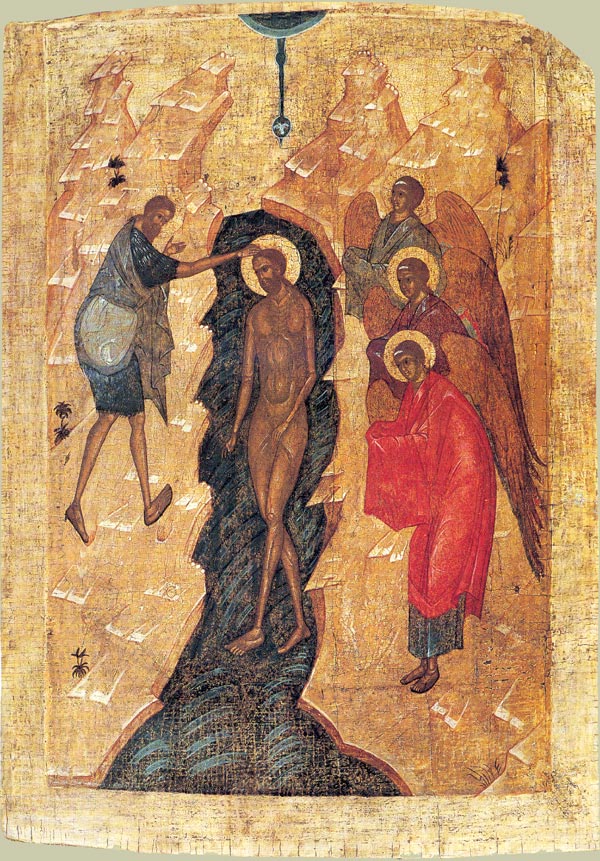
Во Иорда́не креща́ющуся Тебе́, Го́споди,/ Тро́ическое яви́ся поклоне́ние:/ Роди́телев бо глас свиде́тельствоваше Тебе́,/ возлю́бленнаго Тя Сы́на имену́я,/ и Дух в ви́де голуби́не,/ изве́ствоваше словесе́ утвержде́ние./ Явле́йся Христе́ Бо́же,// и мир просвеще́й, сла́ва Тебе́.
Тропарь Крещения Господня